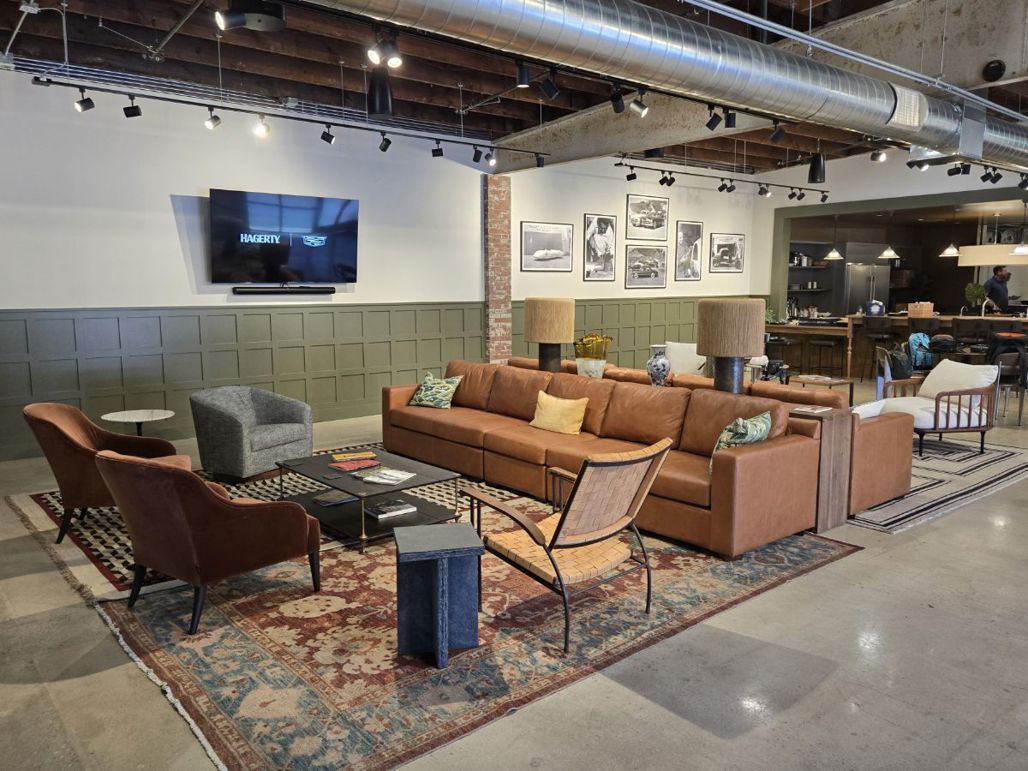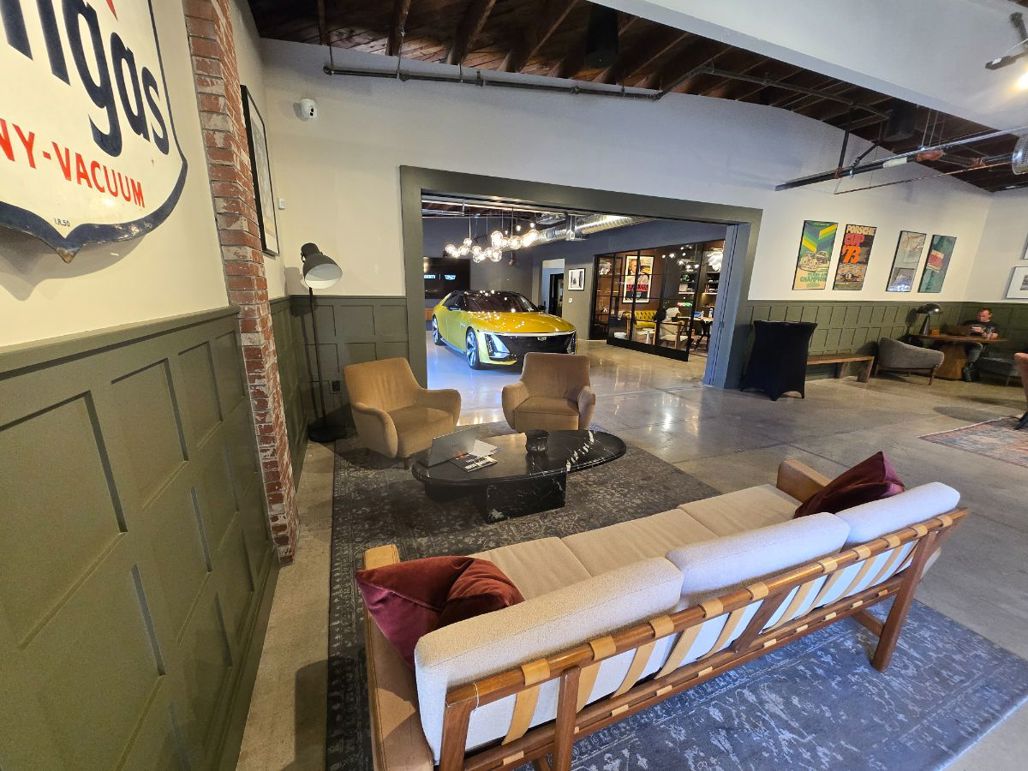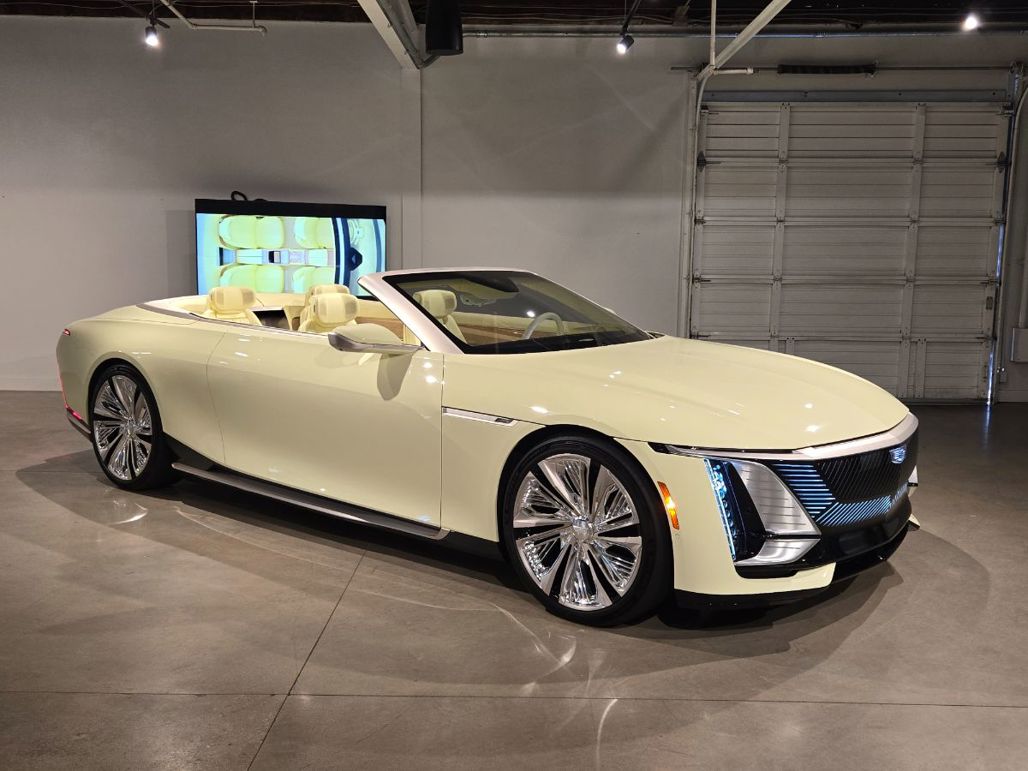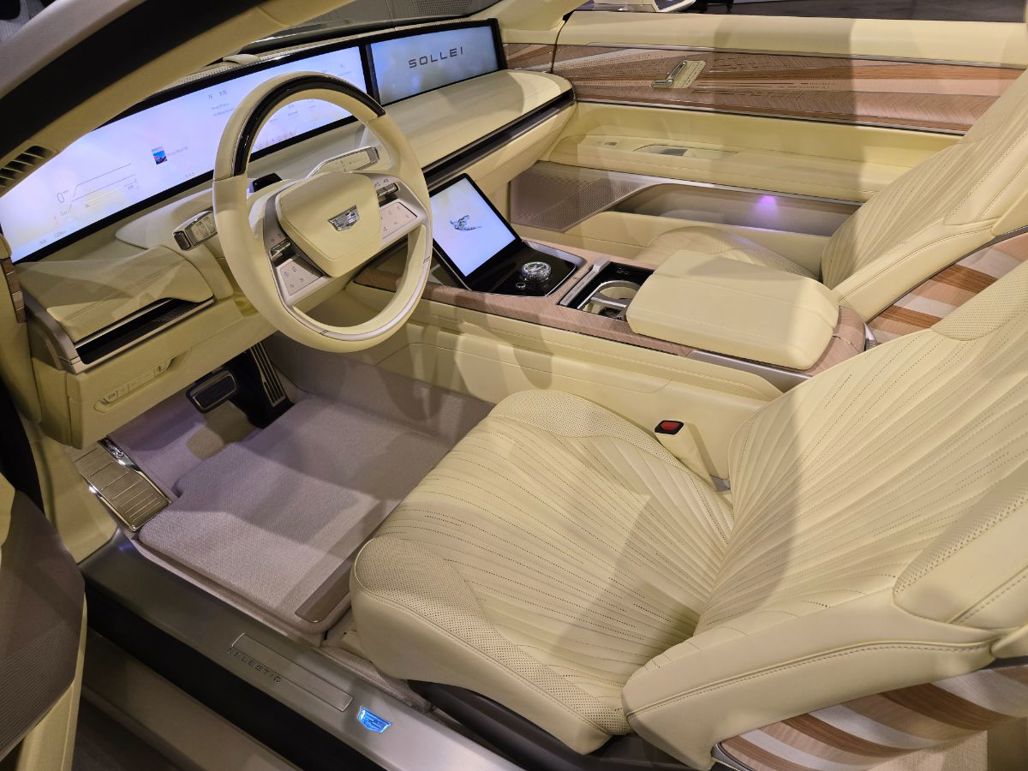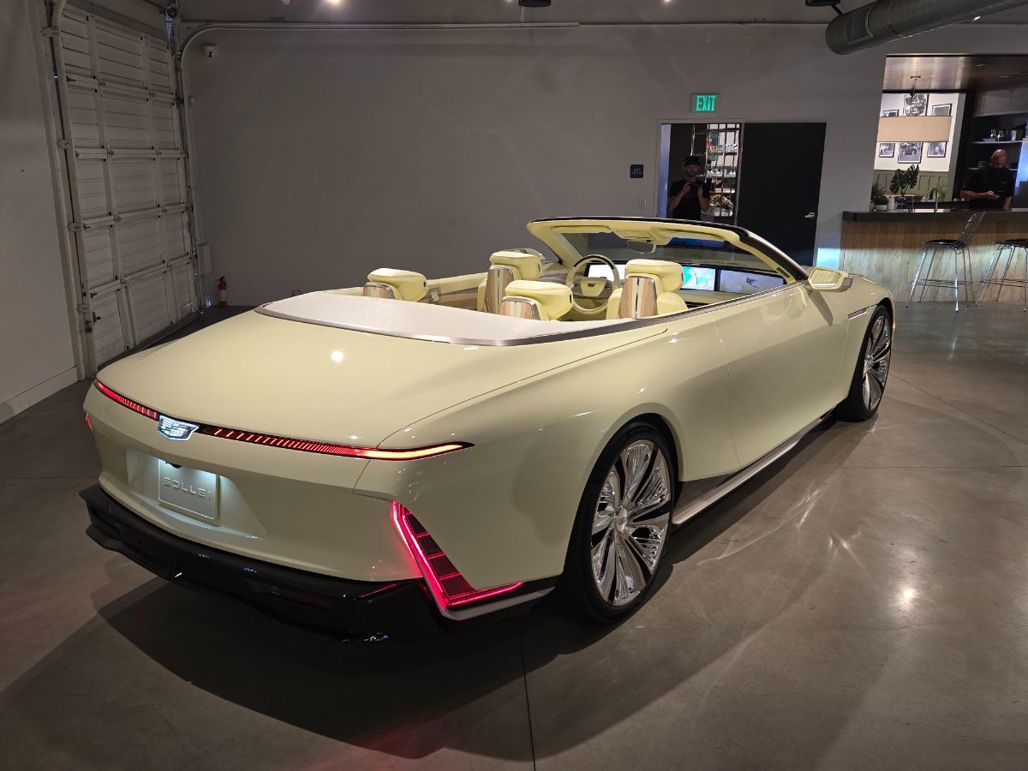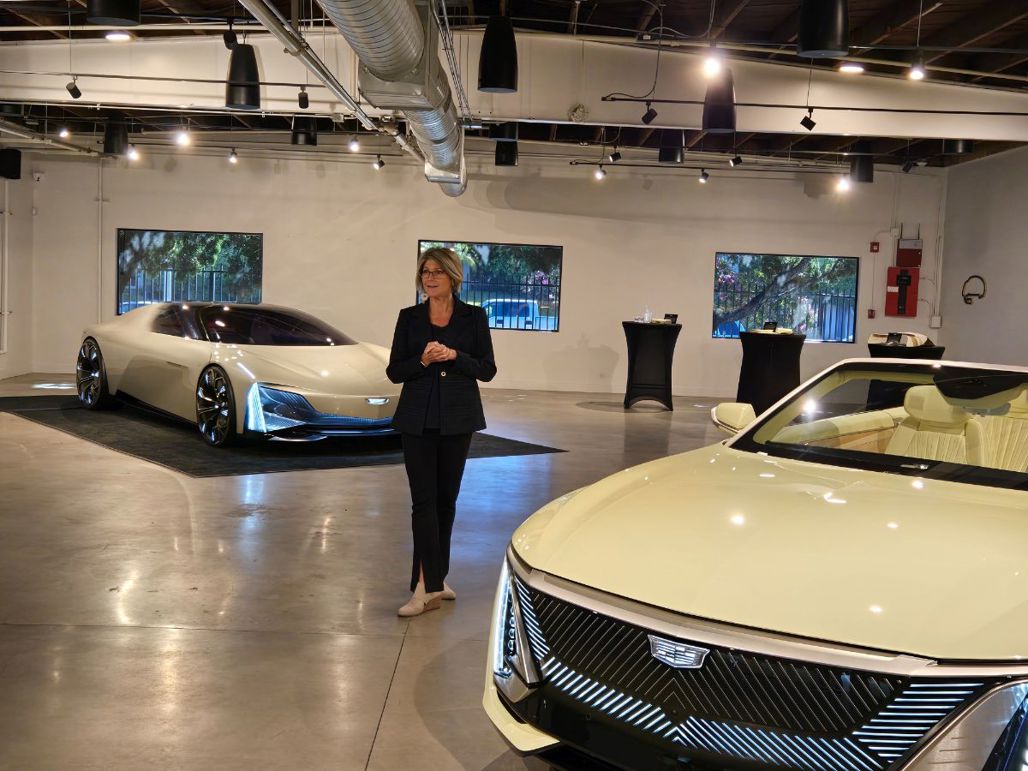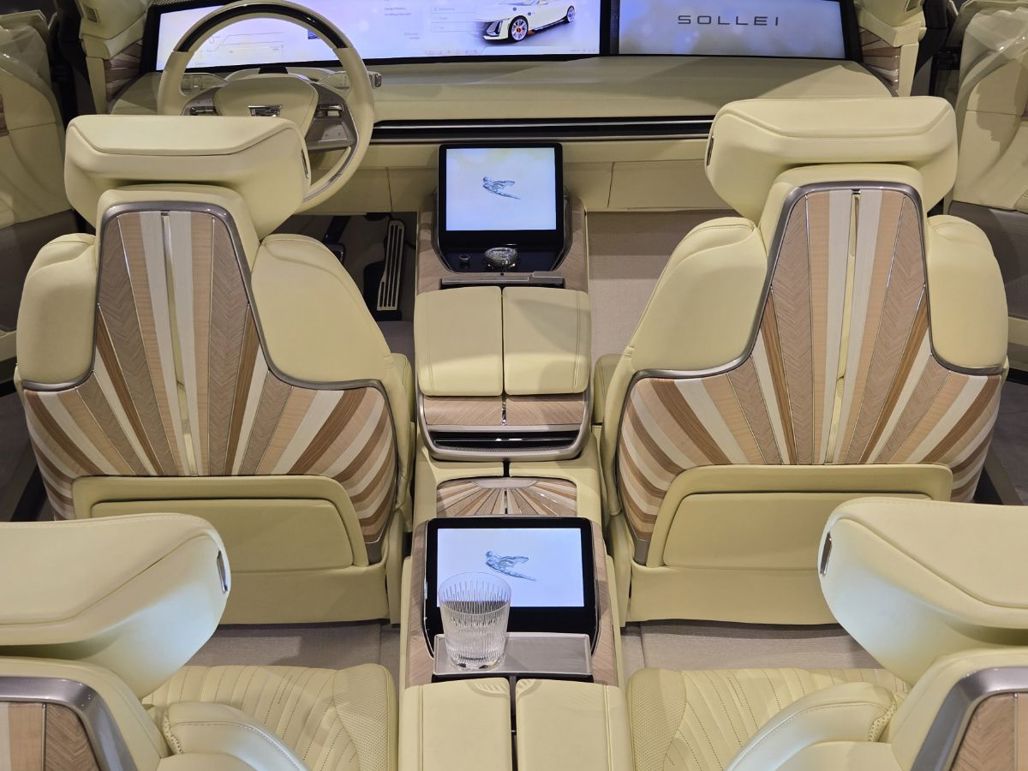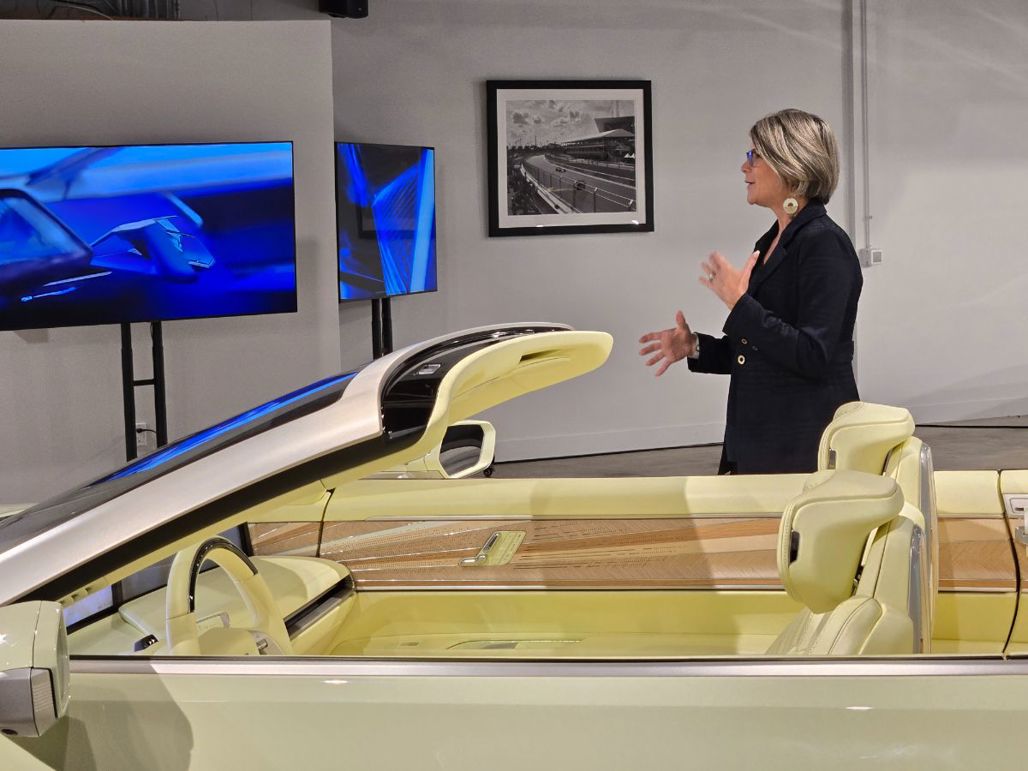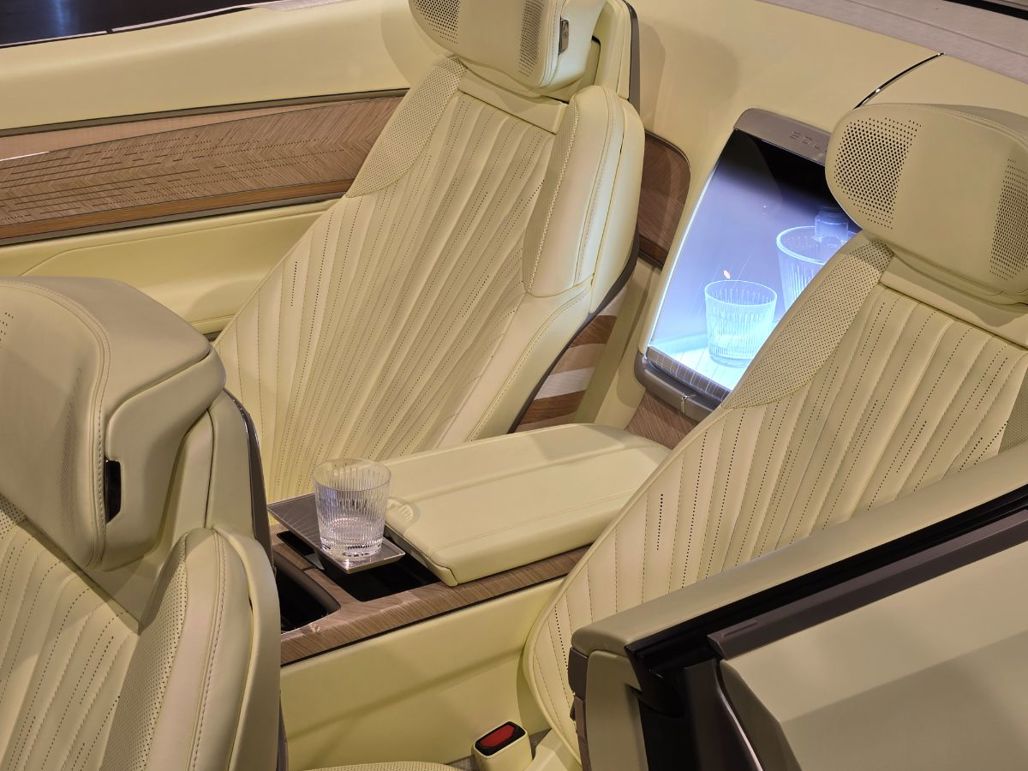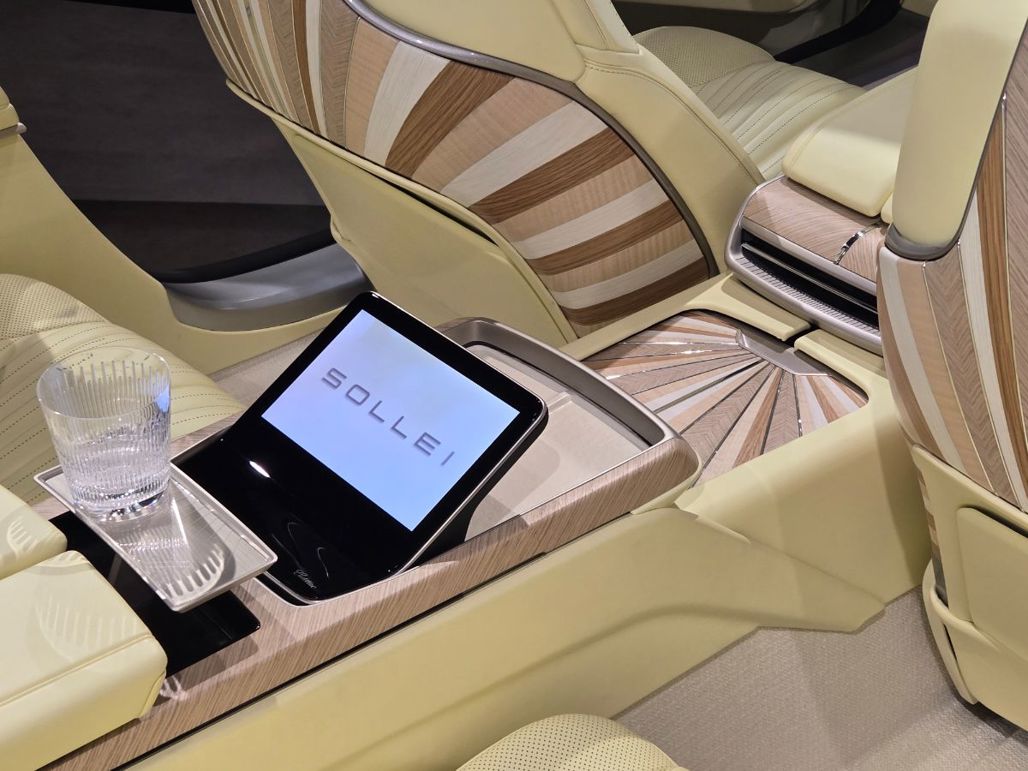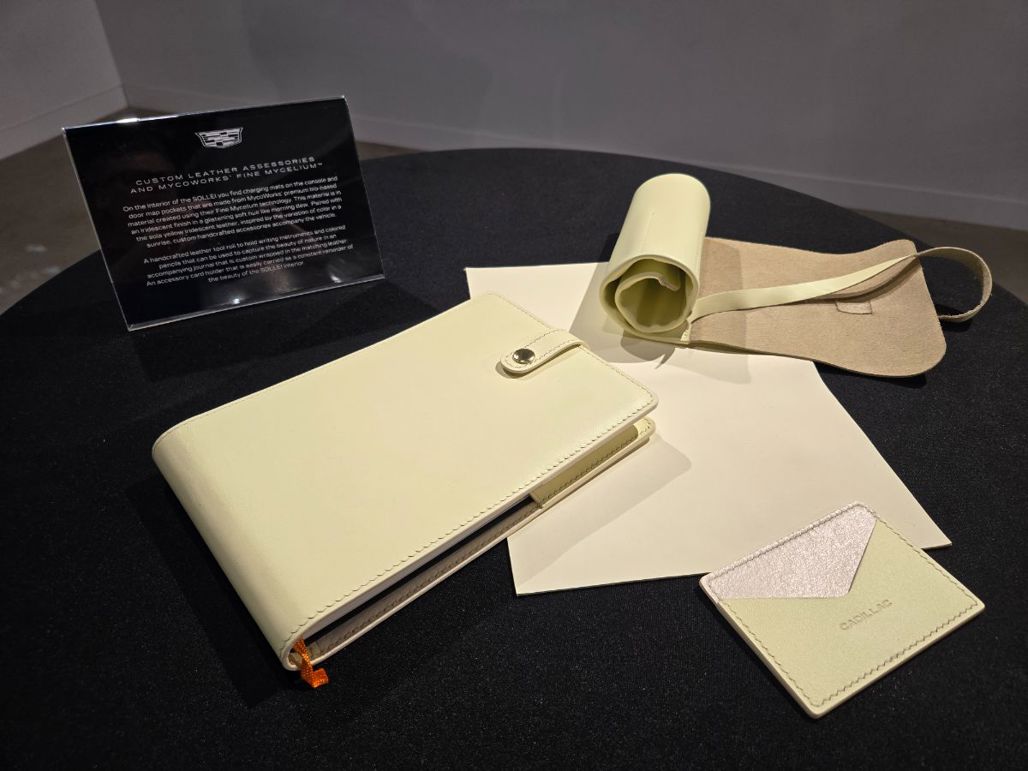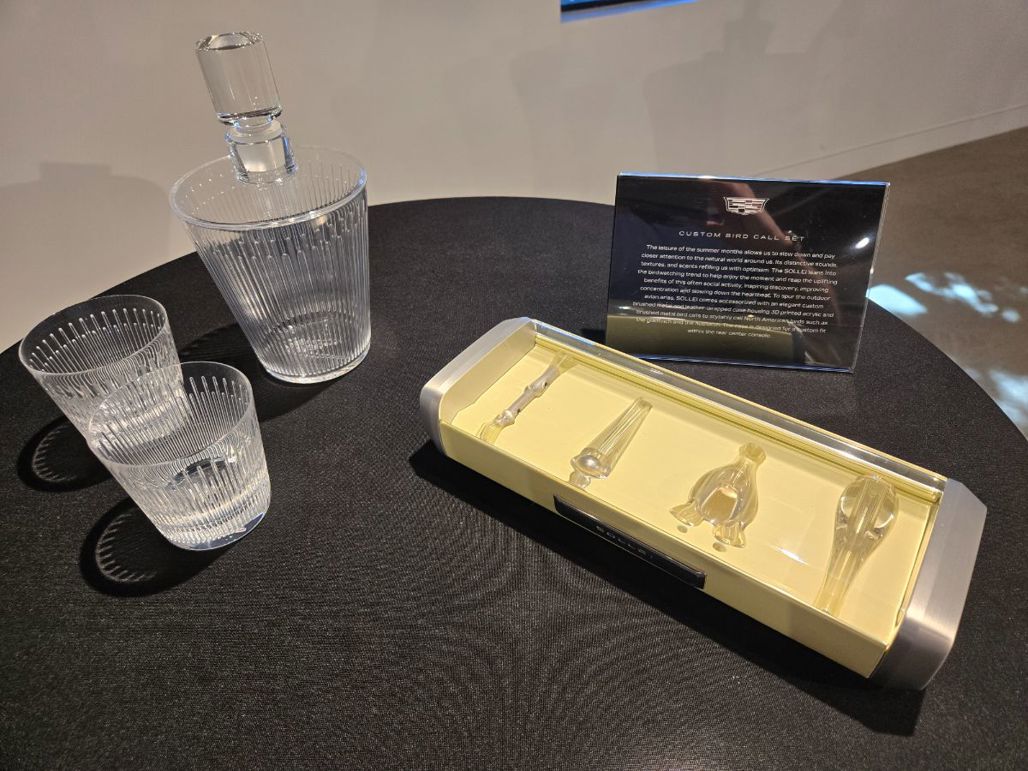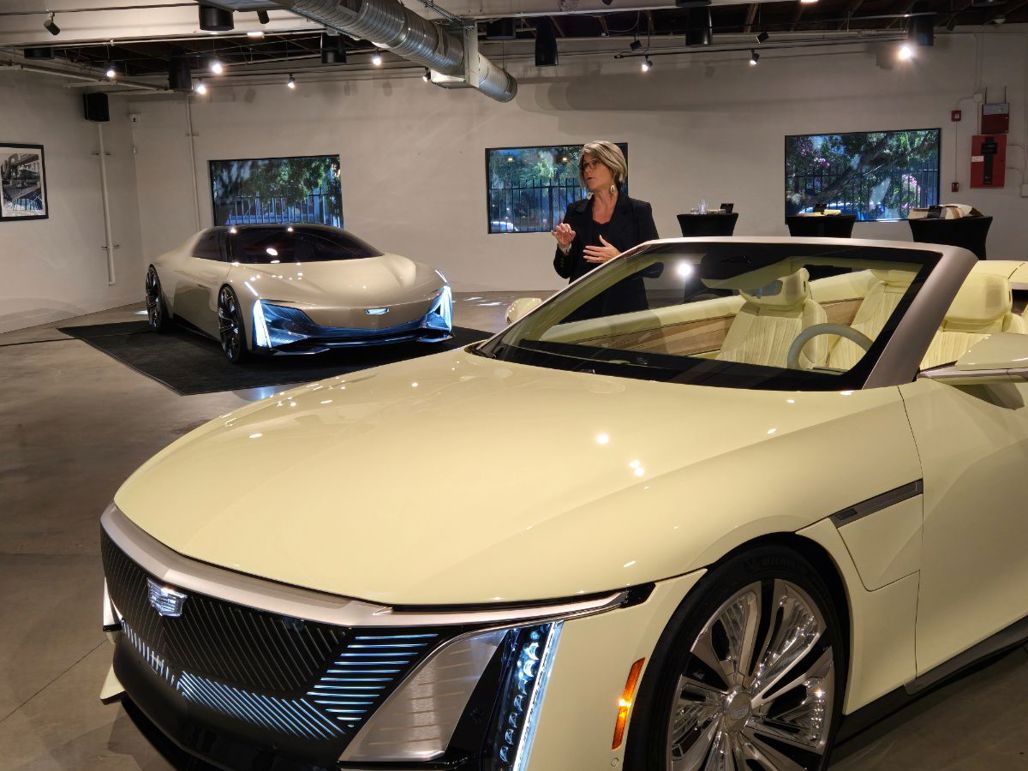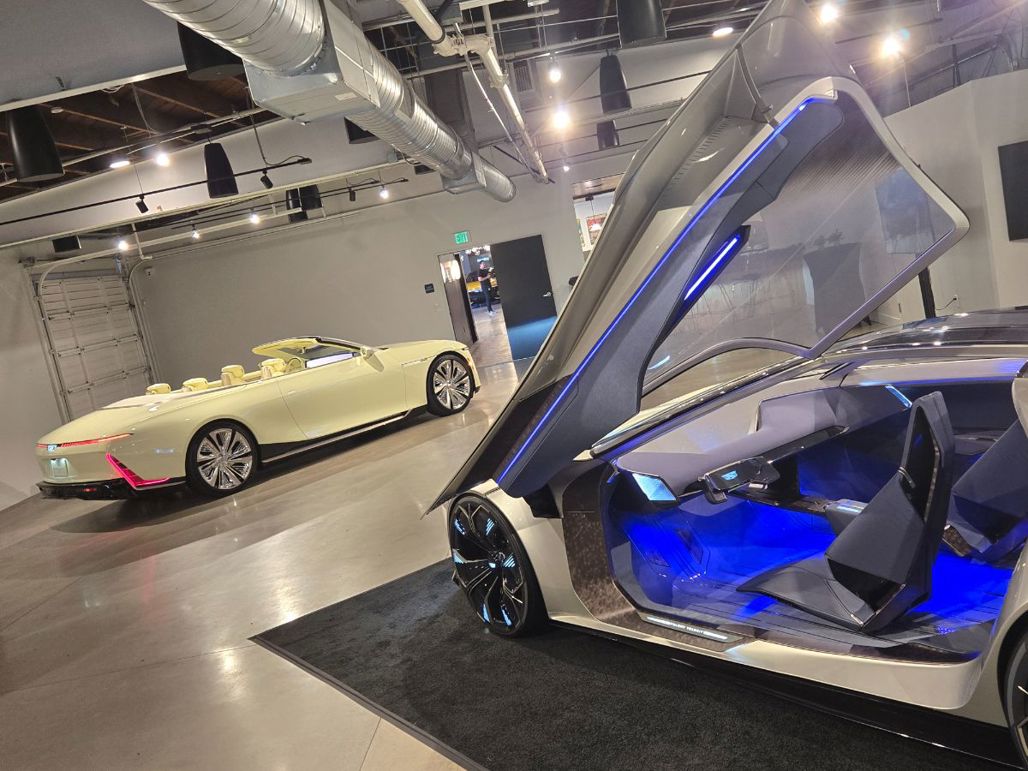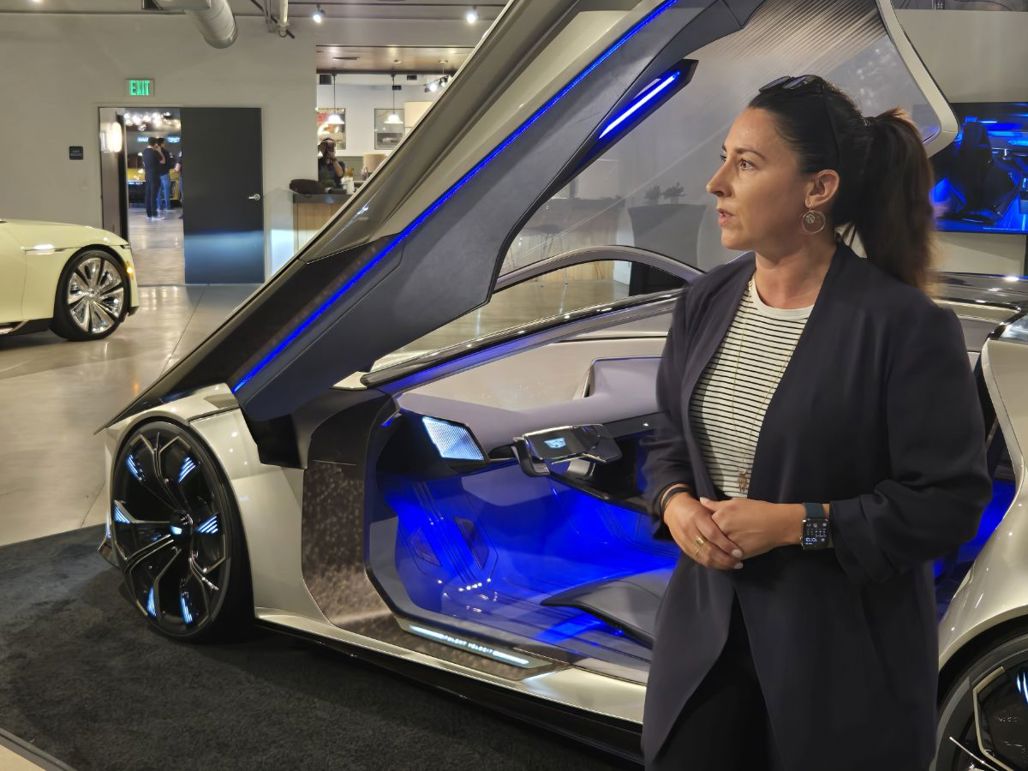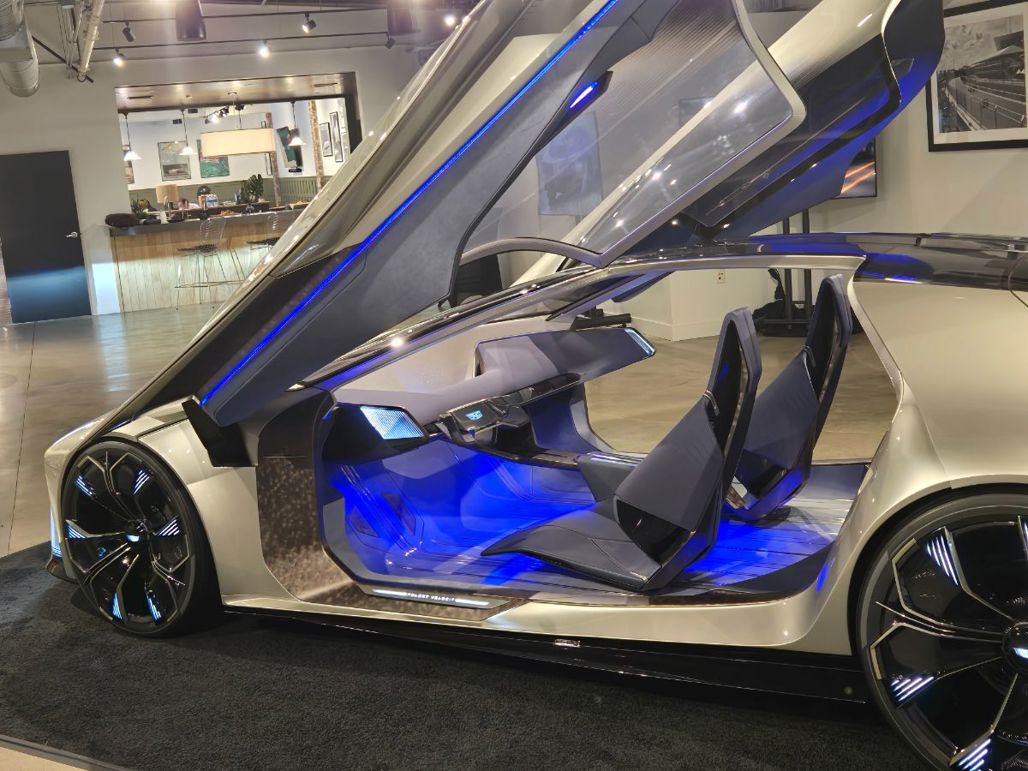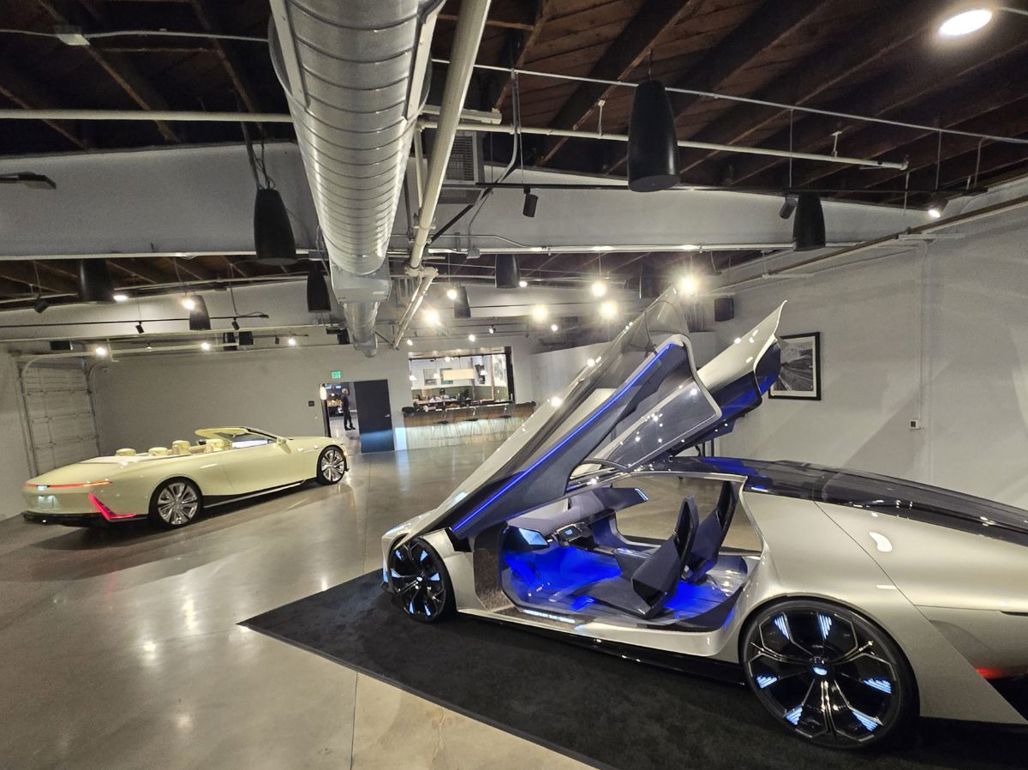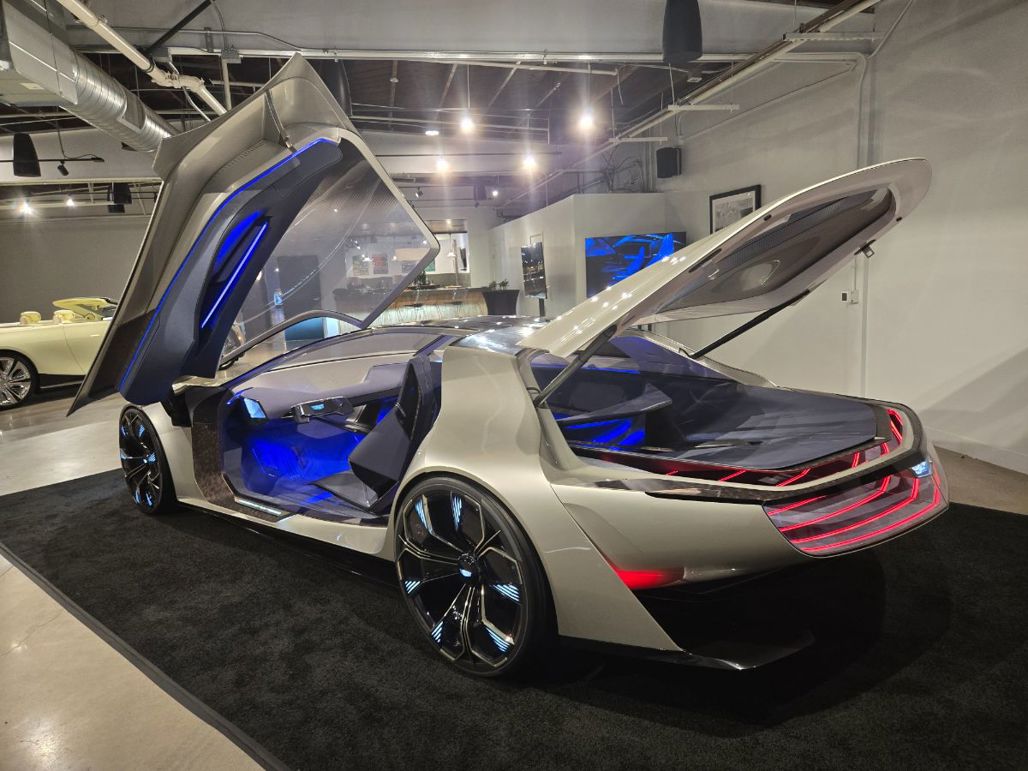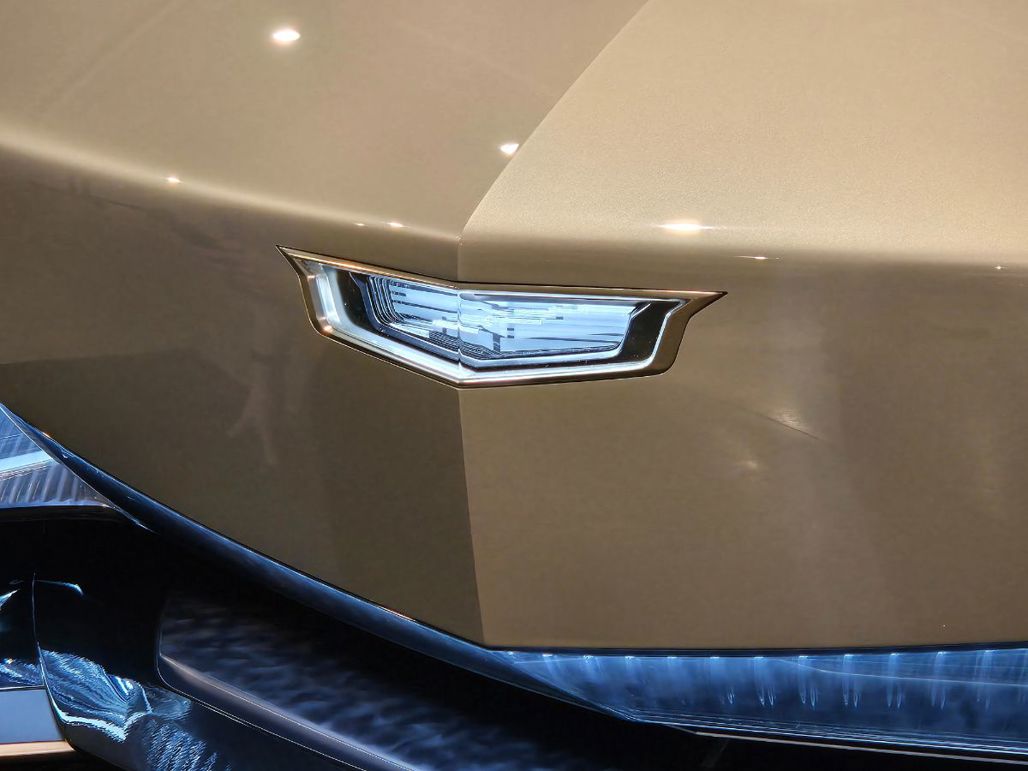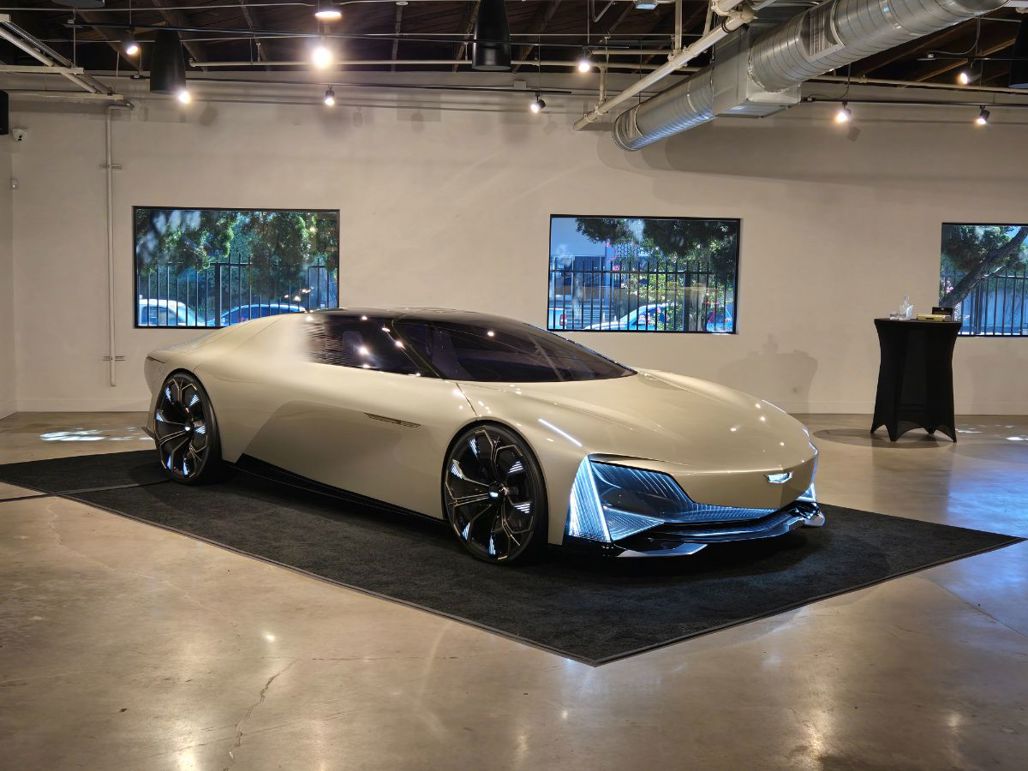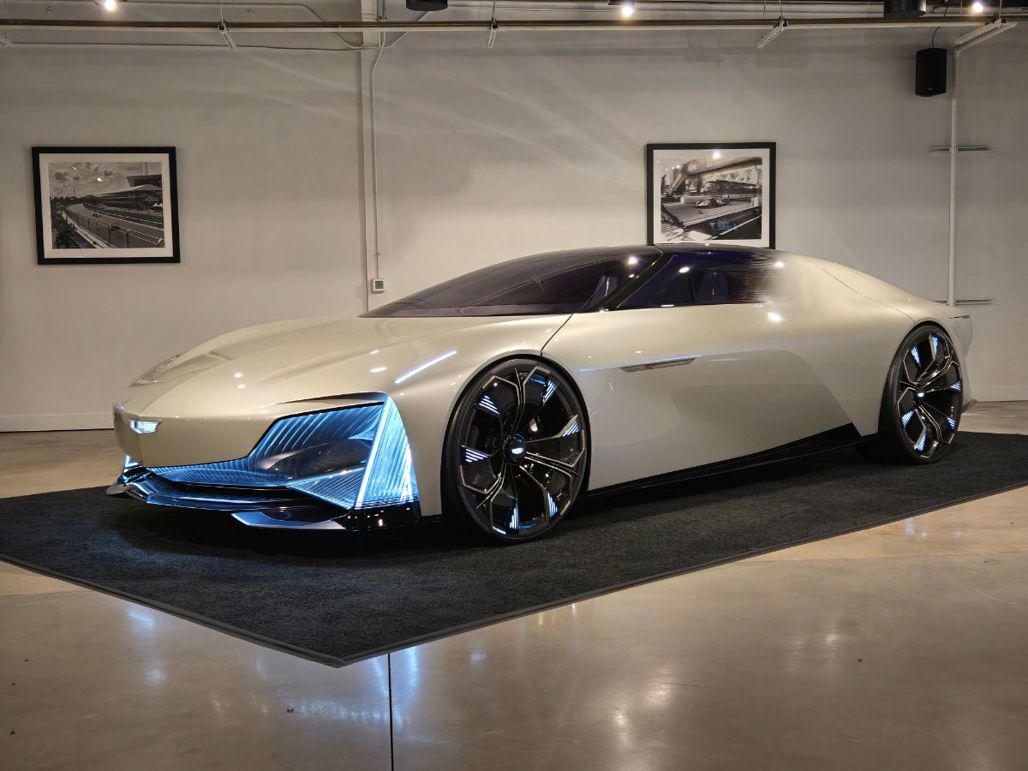If American reality television has taught us anything, it’s that freshly-painted-but-discrete buildings behind large gates in anonymous Los Angeles side streets almost certainly contain priceless classic and/or exotic cars.
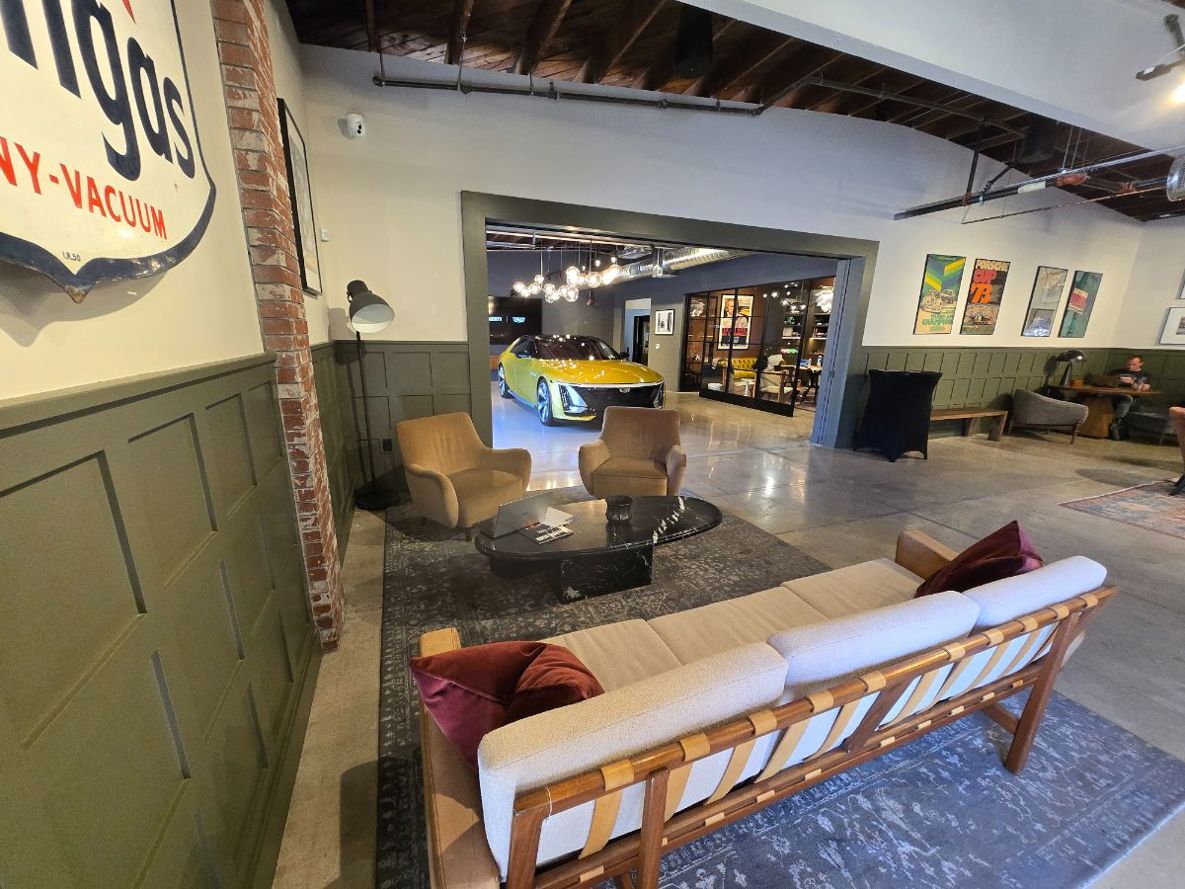
So it proves today in Van Nuys, at Hagerty Garage + Social. Hagerty has network of climate-controlled, high-security car storage facilities around the US which are intended not only to house and manage valuable car collections, but also provide a place for its paid-up members to gather and be car-people.
Except today, it’s not members, but a media group. This is our first stop on a Cadillac Lyriq drive out of West Hollywood towards Topanga, and waiting inside is a showcase of three of the brand’s most extravagant-yet-important creations: Celestiq, Sollei and Opulent Velocity.
All also come accompanied by their own creator-caretakers: Brandon Vivian (Celestiq, executive chief engineer), Erin Crossley (Sollei, design director) and Magalie Debellis (Opulent Velocity, manager Cadillac Advanced Design).
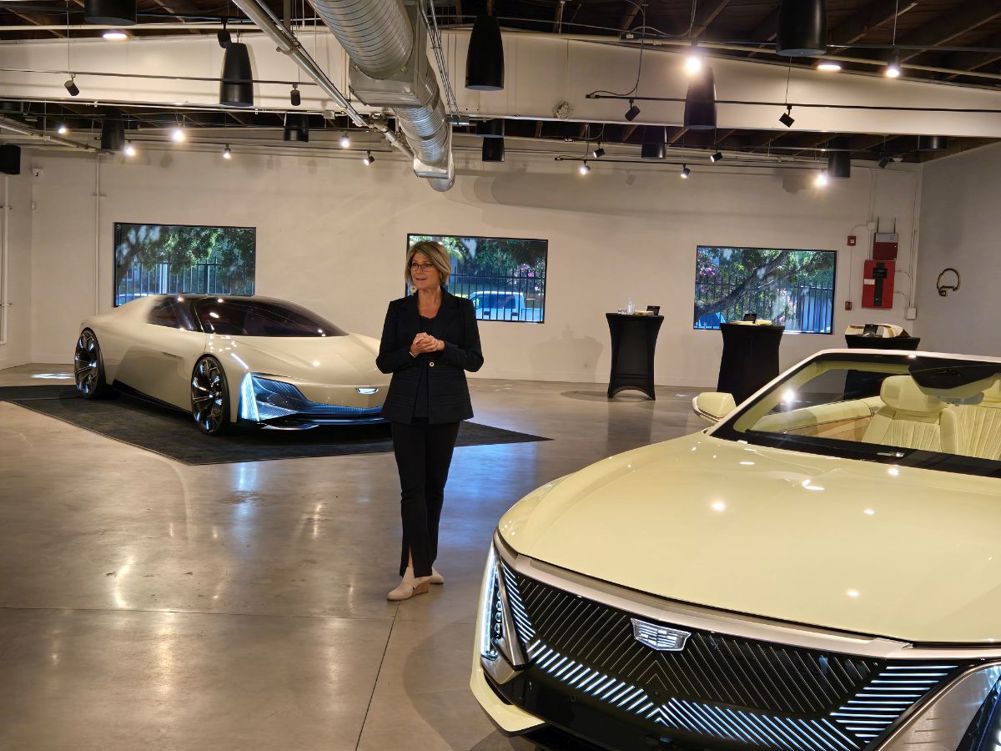
The Celestiq we’ve talked about already: it’s Cadillac’s “ultra-luxury” production sedan that provides extreme personalisation opportunities for clients, albeit ones who can afford to add plenty to a base price of US$350k (NZ$560k).
Sollei: sun and leisure
But also in the house are Cadillac’s two most recent concept vehicles, the Sollei luxury convertible and the Opulent Velocity hypercar.
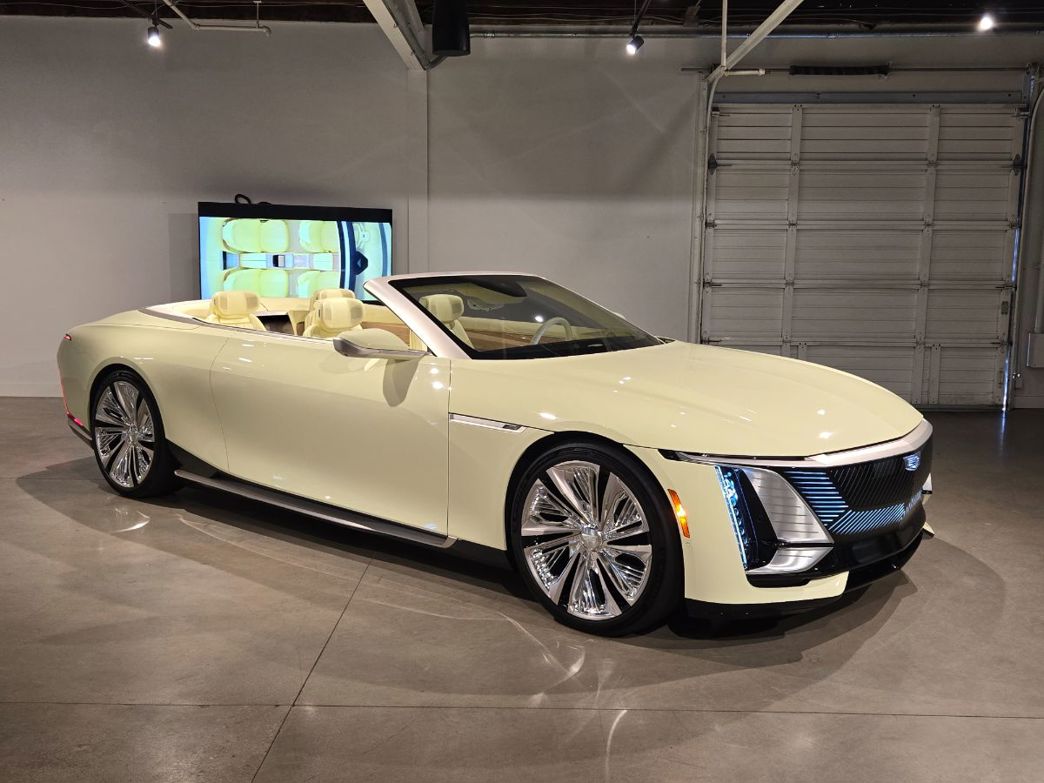
Sollei references classic Cadillacs of the past, but more importantly it illustrates the possibilities of a bespoke programme like that already in action for Celestiq. Opulent Velocity explores new technology and gives the clearest indication yet what an ultra-high-performance model from Cadillac might look like. Both are based around General Motors’ Ultium EV technology.
The Sollei “continues the narrative of the one-of-one bespoke Cadillac,” says Crossley, linking it to the Celestiq programme. It’s an ultra-luxury convertible that shows just how far a client could go in specifying unique features and colourways. The name signifies sun (“Sol”) and leisure (“lei”).
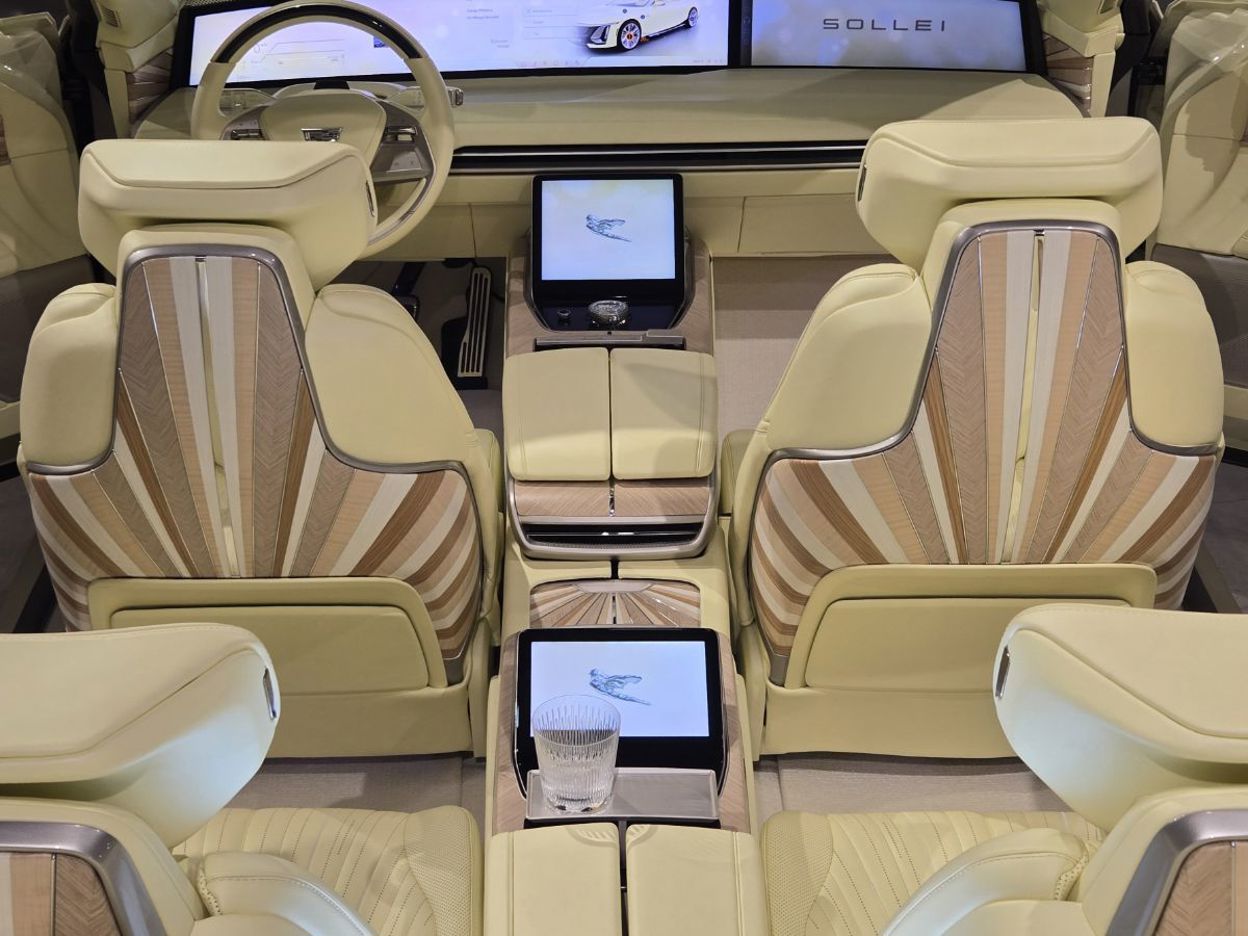
That colour is a reboot of a classic Caddy hue from 1957-58, Manila Cream. Sun-themed features are used throughout: Nappa leather with colour-changing sunrise effect, “Aurora” tint on the metallic surfaces, sunburst quilting and woodwork, and a metallic roof fabric called Daybreak. The wood finishes are hand-cut and open-pore.
The car is all about “elevating the travel experience” for all occupants, says Cadillac. Right down to an integrated beverage chiller with power glass door and crystal glasses.
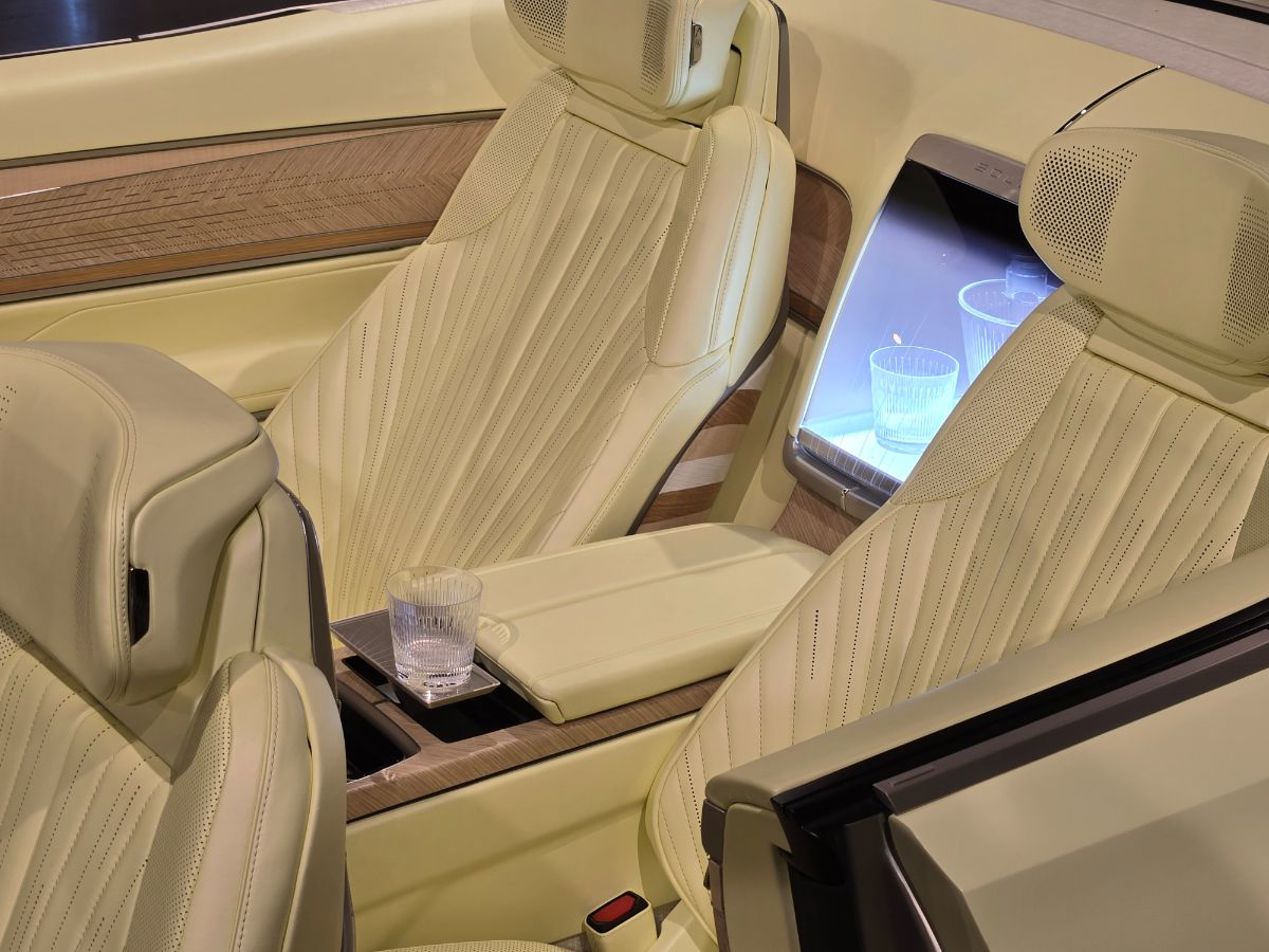
One of the more novel accessories is a custom brushed metal and leather-wrapped case housing 3D printed acrylic bird calls, a leather-bound journal with hand painted bird illustrations and a leather tool roll for pens and pencils, made to custom match the vehicle interior.
The traditional ambience is combined with modern tech, including a 55-inch dashboard display and a choice of 126 ambient colour options in each seating zone.
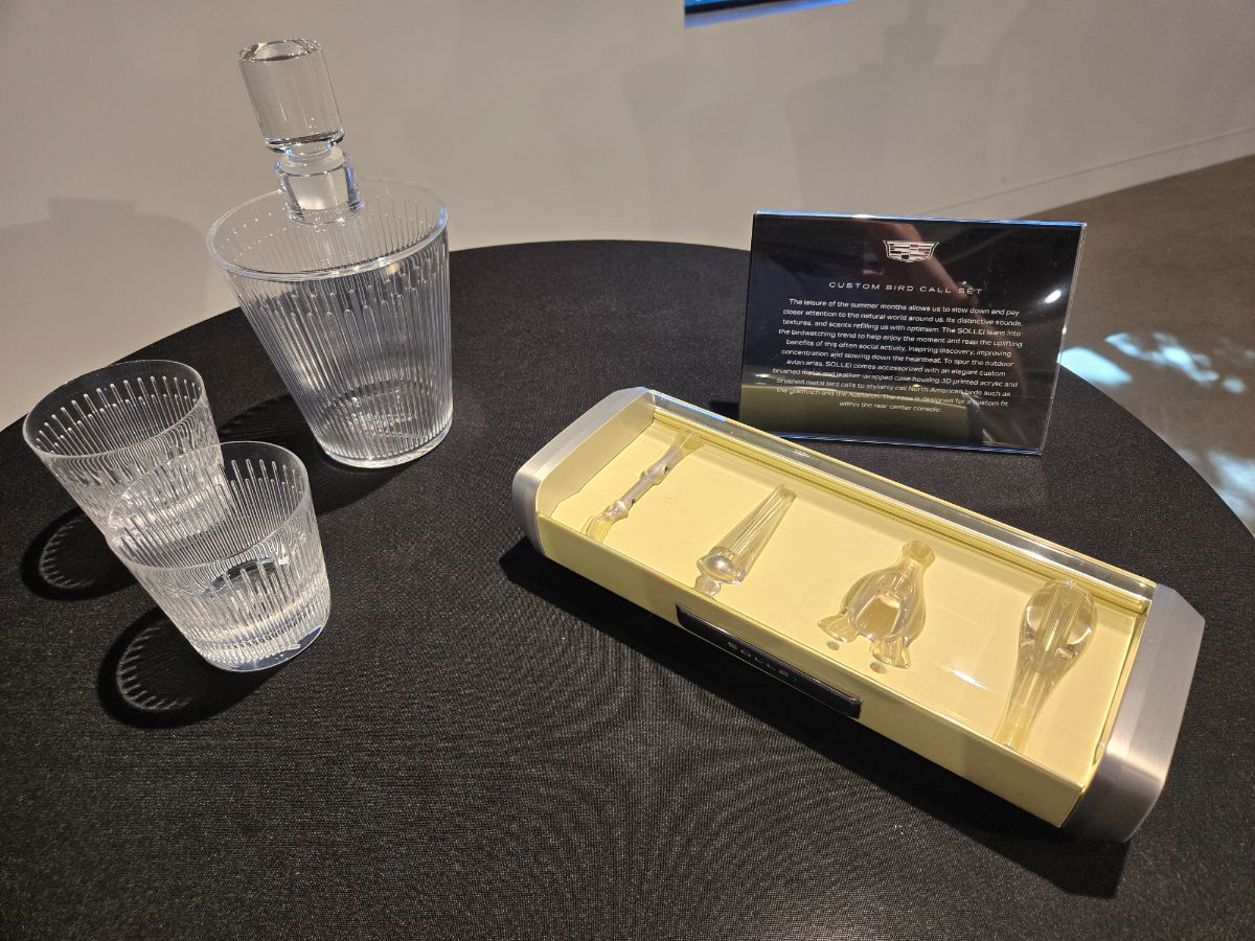
Sollei is also Cadillac’s first concept vehicle to incorporate a bio-based material developed in collaboration with MycoWorks. Used in the charging mats on the console and the door map pockets, Fine Mycelium is made from the renewable root structure of mushrooms.
Opulent Velocity: it's posh and fast
Meanwhile, Opulent Velocity purports to show the future for Cadillac’s high-performance V-series models – perhaps even a hypercar.
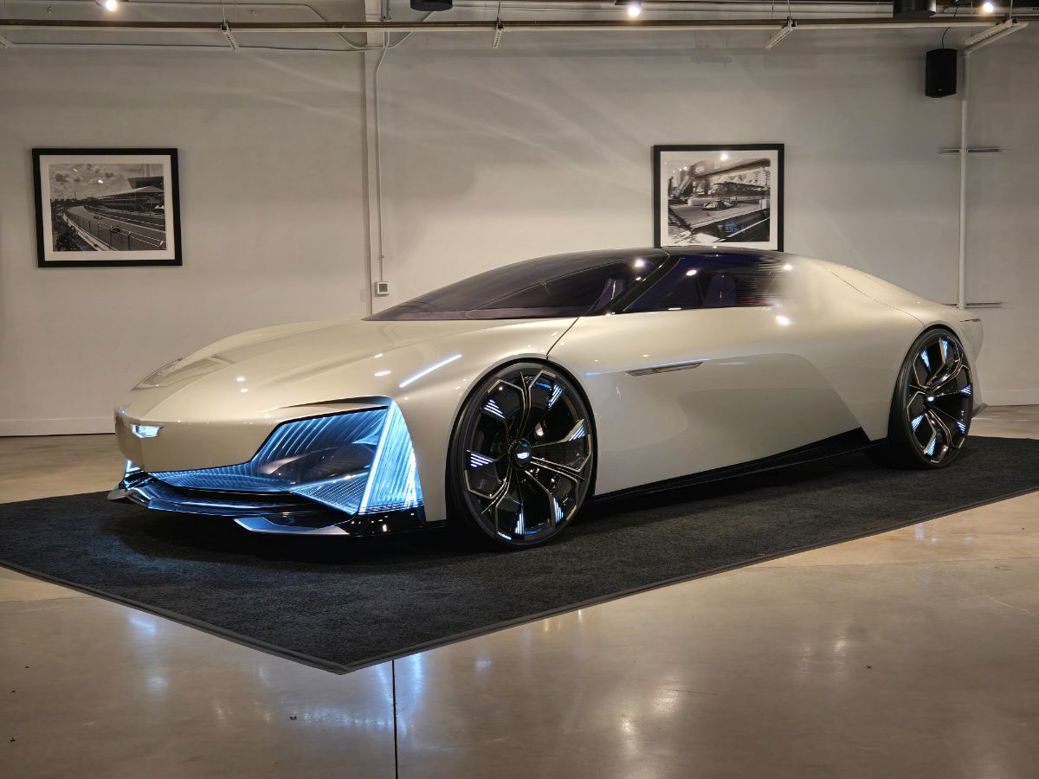
It’s a hands-on supercar, but also a hands-off Level 4 autonomous machine, with dual modes that aim to combine full driver involvement (“Velocity experience”) with self-drive luxury.
In self-drive mode the steering wheels and pedals are absent. Once Velocity model is activated via a touch on the multi-function controller, the controls present themselves and the user is prompted to take hold. The concept’s front seats saddle the cantilevered Y-shaped console and are mated directly to the door, helping secure the driver for high-speed cornering.
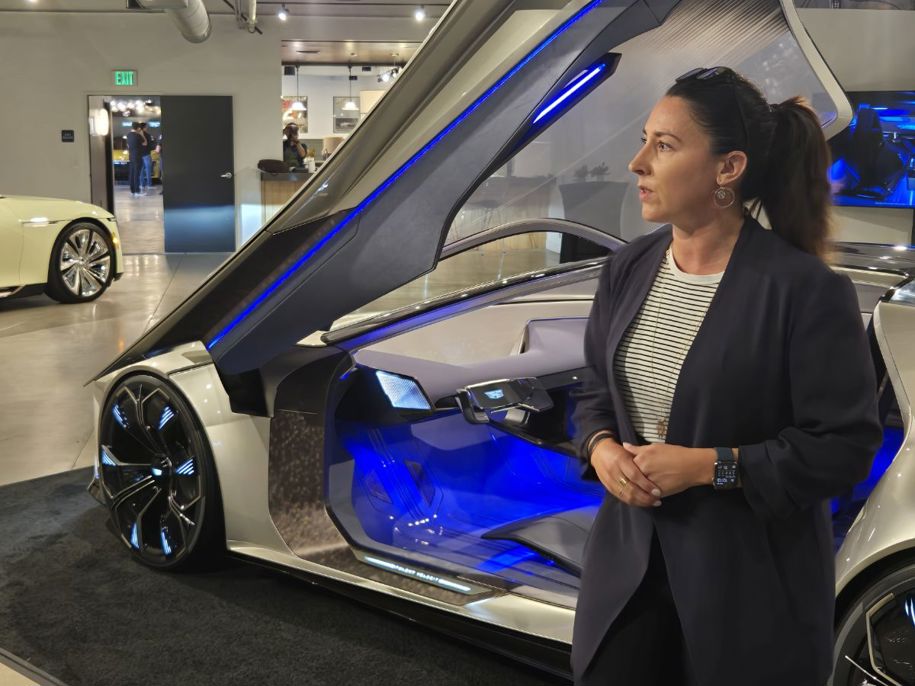
Velocity mode conceptualizes a “Ghost Car” function that displays on the HUD screen; it allows drivers to improve lap times or compete against peers on various designated tracks.
“It conceptualises a holistic consideration of all elements and senses, showcasing a perfect marriage of hypercar personality with luxury execution and revered opulence,” says Debellis.
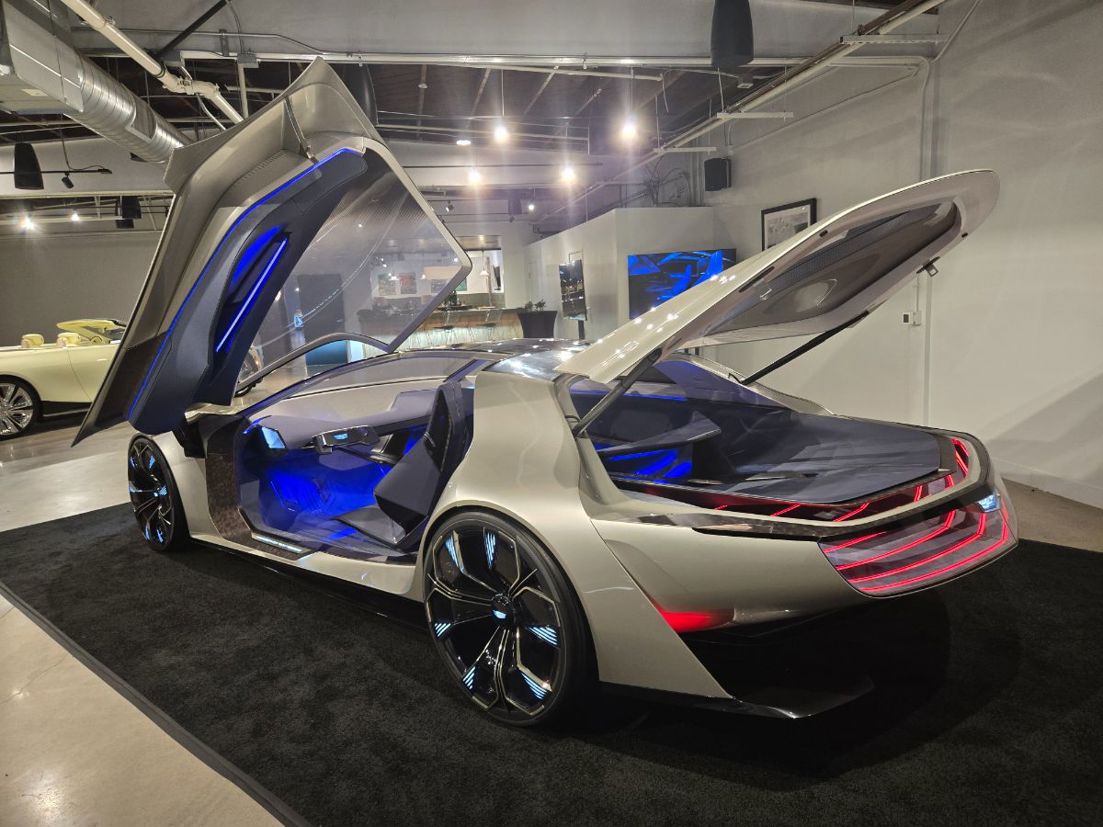
“It showcases where we’re going in terms of colour, trim and materials, and the UI/UX experience.”
The interior employs 3D printing technology and in soe trim, flax fibres sit underneath tinted silver pearly flakes, combining “essence of lightweight performance material and an opulent execution”.

